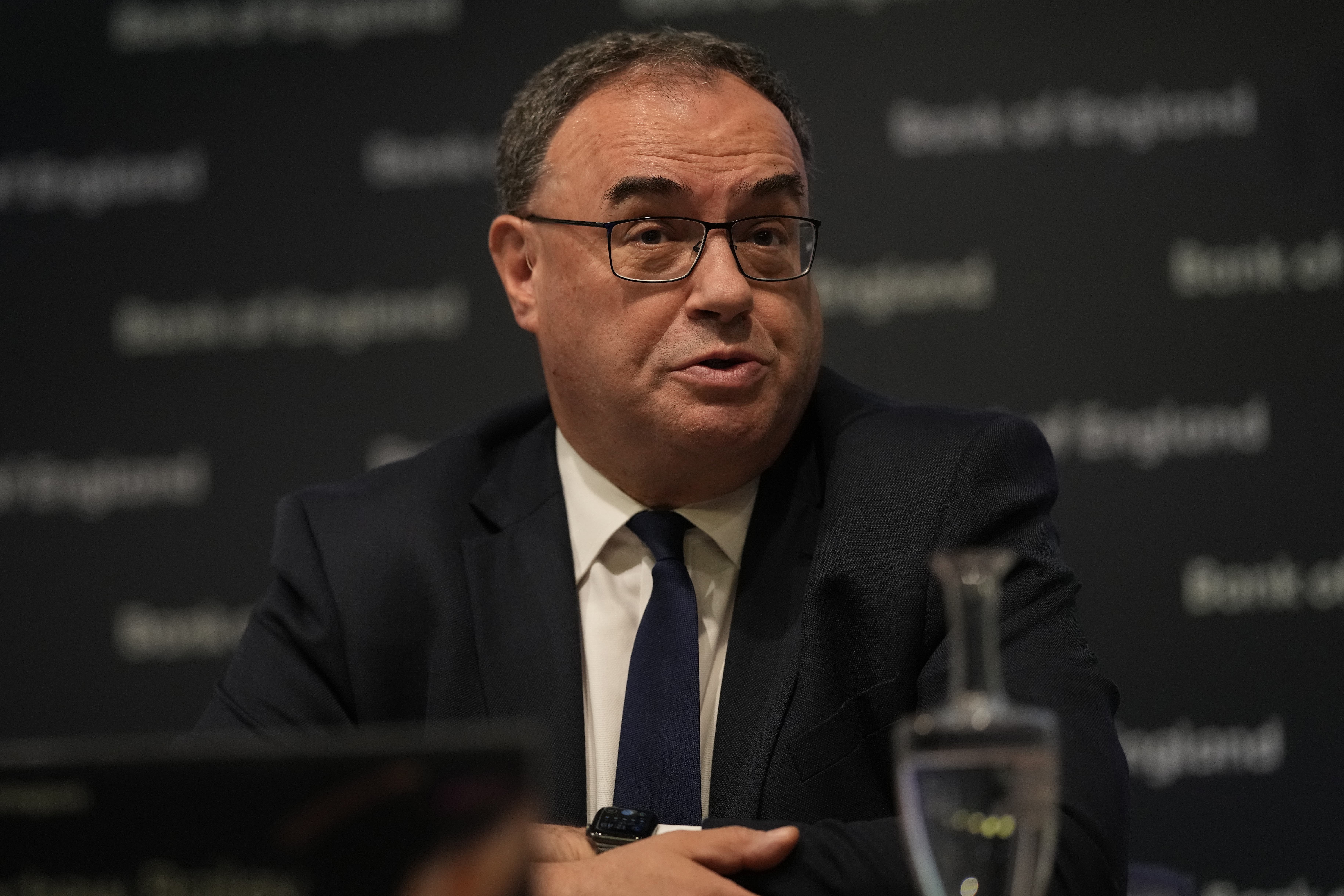Bank expected to keep rates unchanged amid recession fears
The Bank of England’s Monetary Policy Committee announces its next interest rates decision on Thursday.

Your support helps us to tell the story
From reproductive rights to climate change to Big Tech, The Independent is on the ground when the story is developing. Whether it's investigating the financials of Elon Musk's pro-Trump PAC or producing our latest documentary, 'The A Word', which shines a light on the American women fighting for reproductive rights, we know how important it is to parse out the facts from the messaging.
At such a critical moment in US history, we need reporters on the ground. Your donation allows us to keep sending journalists to speak to both sides of the story.
The Independent is trusted by Americans across the entire political spectrum. And unlike many other quality news outlets, we choose not to lock Americans out of our reporting and analysis with paywalls. We believe quality journalism should be available to everyone, paid for by those who can afford it.
Your support makes all the difference.Eyes will be turned towards the Bank of England’s forecasts for the UK economy on Thursday as decision-makers are expected to leave interest rates unchanged at 5.25%.
With the economy weak according to several closely watched metrics, economists have been talking increasingly about the risk that the country could be headed for a recession.
Last time the Bank’s Monetary Policy Committee (MPC) met, in September, it said that it downgraded its outlook for the third quarter of 2023, predicting that gross domestic product (GDP) would only rise by 0.1%, compared with the 0.4% increase it had forecast just a month earlier.
It said that intelligence from its agents “suggested that activity had remained subdued and that there were growing concerns about the economic outlook”.
It is not a fully coherent picture, but one consistent with the economy at the early stages of entering a recession
Now Bank watchers will be keen to find out whether the economists on Threadneedle Street think that the UK might be heading for a recession.
Although any such forecast would come with a warning that the Bank has been wrong in the past.
The release of Thursday’s MPC Report will come just one day less than a year since the Bank forecast that the UK was on course for its longest recession since the 1930s.
As a result of this and other misses on the inflation front, the Bank in July appointed former US Federal Reserve chair Ben Bernanke to lead a review of its forecasts.
It is also almost exactly a year since the MPC hiked interest rates by 0.75 percentage points on November 3, 2022, the biggest single increase since 1989.
But a year on and the picture for rates is significantly different.
In September, the Bank kept rates unchanged at 5.25% – the first hold decision for nearly two years after 14 hikes in a row.
Experts believe that Thursday’s meeting will see rates held once more as inflation has eased back and as the Bank’s flurry of rate increases takes its toll on the economy.
James Smith, a developed markets economist at ING, said it was unlikely that a majority of policymakers will vote for a rise this month.
“It would only take one committee member to change their mind to tip the balance in favour of more tightening – but we’re doubtful,” Mr Smith said.
He said that there had been little new data since the last vote, so those who voted against hiking rates are unlikely to change their minds.
He added that one of those who voted to hike last time – Jon Cunliffe – has since left the MPC.
Investec economist Sandra Horsfield said that MPC members may still decide to hike rates, but added that “the case for raising rates further now does look somewhat weaker to us than at the last meeting”.
She pointed to recent soft economic data, including lower-than-expected inflation in September, worse GDP than in prior forecasts and weak retail sales and consumer confidence.
“It is not a fully coherent picture, but one consistent with the economy at the early stages of entering a recession,” according to Ms Horsfield.
“How the jobs market is faring is, regrettably, unclear. Given methodology changes the ONS made to derive unemployment and employment numbers, due to low response rates to the usual Labour Force Survey, the MPC is essentially flying blind in this regard.”